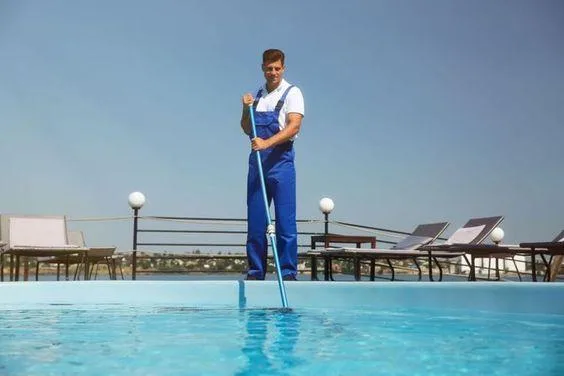The Importance of Swimming Pool Maintenance
The Importance of Swimming Pool Maintenance: Ensuring Clean, Safe, and Enjoyable Recreation


Swimming pools serve as oases of relaxation, exercise, and recreation for millions around the world. However, the allure of crystal-clear waters and refreshing dips can quickly fade if proper maintenance is neglected. In this essay, we’ll explore the significance of swimming pool maintenance in preserving water quality, ensuring safety, and enhancing the overall enjoyment of this beloved aquatic amenity.
Maintaining optimal water quality is paramount to the enjoyment and safety of swimmers. Proper chemical balance, including pH levels, chlorine or other sanitizers, and alkalinity, is essential in preventing the proliferation of harmful bacteria and algae. Regular testing and adjustment of these parameters ensure that the water remains clean, clear, and free from contaminants. Neglecting water quality maintenance can result in cloudy, murky water that poses health risks to swimmers and detracts from the pool’s aesthetic appeal.
Regular cleaning and sanitation are necessary to remove debris, dirt, and organic matter from the pool’s surface and walls. Skimming the surface daily to remove leaves, insects, and other debris prevents them from sinking and decomposing, which can compromise water quality and clog filtration systems. Additionally, vacuuming the pool floor and walls, brushing surfaces, and cleaning skimmer baskets and filters help maintain a clean and inviting swimming environment. Failing to address cleanliness and sanitation can lead to unsightly algae growth, surface staining, and increased maintenance costs.
The pool’s filtration system plays a crucial role in removing impurities and maintaining water clarity. Regular maintenance of the filter, pump, and other components is necessary to ensure optimal performance and efficiency. Backwashing or cleaning the filter regularly prevents clogging and ensures proper filtration of debris and contaminants. Neglecting filtration system maintenance can result in poor water circulation, reduced filtration efficiency, and increased chemical demand, leading to cloudy or dirty water.
Preventative maintenance helps identify and address potential issues before they escalate into costly repairs or downtime. Regular inspections of the pool and its equipment allow for early detection of leaks, cracks, or equipment malfunctions. Prompt troubleshooting and repair of problems such as malfunctioning pumps, leaks in plumbing, or deteriorating pool surfaces prevent further damage and ensure uninterrupted enjoyment of the pool.
In addition to water quality and cleanliness, pool maintenance encompasses various safety considerations. Proper installation and maintenance of safety equipment, such as pool covers, fences, and alarms, are essential to prevent accidents and injuries, particularly among children and non-swimmers. Enforcing pool rules, providing supervision, and promoting responsible behavior further contribute to a safe and enjoyable swimming experience for all.
In conclusion, swimming pool maintenance is essential for preserving water quality, ensuring safety, and enhancing the overall enjoyment of this cherished recreational amenity. By prioritizing regular maintenance practices such as water testing, cleaning, filtration system maintenance, and safety measures, pool owners can create a clean, safe, and inviting environment for swimmers of all ages to enjoy. Ultimately, investing time and effort in proper pool maintenance yields invaluable returns in terms of health, safety, and recreational satisfaction.